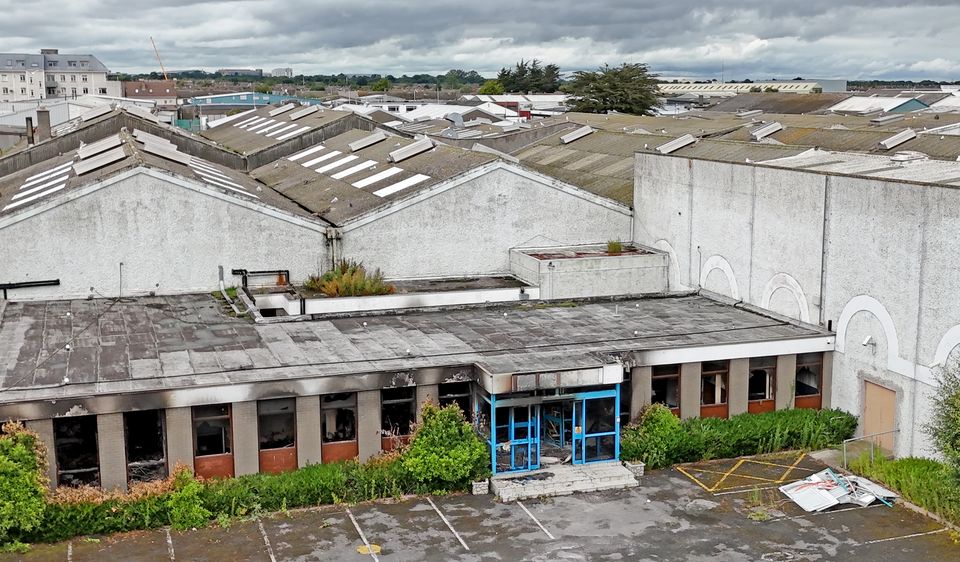The Government will still use the former paint factory in Dublin as accommodation for people who have applied for asylum, Integration Minister Roderic O’Gorman has said.
Mr O’Gorman said engagement with the community had raised a range of issues, including a lack of services, but said the government could not accept that some people did not want asylum seekers living in their area.
A protest was held at the former Crown Paints factory in Coolock which is to be renovated to accommodate more than 500 asylum applicants.
On Monday July 15, tensions escalated at the location after a digger and mattresses were burned and a member of the security staff at the building was injured.
Riot police attended the scene and more than 30 people were arrested.
Garda Commissioner Drew Harris said that the Department of Justice and IPAS (International Protection Accommodation Services), as well as gardai can learn lessons from Coolock, adding that gardai “bore the brunt” of the tensions.
Mr O’Gorman acknowledged that there are “very real” disadvantage issues in Coolock that the government would “take meaningful steps” to respond to.
“It remains our intention to use this facility to accommodate international protection families,” Mr O’Gorman said.
“Our community engagement team continues to engage with reps and I know the Northside Community Forum has put forward a proposal in terms of trying to bring in a wider range of voices in terms of this particular centre.
“We’re very happy to engage with that particular process and we appreciate the work that’s been done in terms of trying to bring that together. And that will be taking place over the coming weeks.”
He added: “We’re hearing a range of issues. We have to recognise, there are some people who just don’t want international protection applicants living in their community and that’s not a position that the government can accept.
“But there are people who raise the very real issues of disadvantage that Coolock faces as a community and are looking to, I suppose, point out where the state could take meaningful steps to respond to that, in the context of an ask of international protection accommodation.
“That’s why we set up a community engagement team. And it’s why it would be important that we’re able to demonstrate the additional supports that we are putting in place to support accommodation in this location.”
Mr O’Gorman said that progress was being made on welcome centres for asylum seekers as part of a long-term accommodation strategy launched earlier this year.
The strategy aims to house international protection applicants and also ease Ireland’s reliance on commercial properties to house refugees and asylum seekers.
He said that 1,300 asylum seekers, some of whom had been homeless for “a considerable” amount of time, had been housed since the launch of the new approach.
The former Crown Paints factory in Coolock, north Dublin, which was at the centre of a protest over plans to redevelop it to house asylum seekers (Niall Carson/PA)
Mr O’Gorman said he expected buildings for new welcome centres to be bought in the coming months, but where construction needs to take place on newly bought sites, this would not take place before the next general election.
“Obviously, it depends on that decision by An Taoiseach in terms of the date, but yes, I would hope to see (purchased buildings) occupied before the general election,” he said.
He said once the State-owned centres are set up, it will have a “very significant” impact on the cost of housing migrants as they will not be as reliant on the commercial sector.
Asked about where the locations of these centres would be, Mr O’Gorman said there was “no sense of things being hidden”.
“We have to bring difficult openings to communities around the country every day of the week.
“When we are certain about locations for purchases, we’re obviously not going to name a place we might bid for because that will obviously impact on the price.
“In terms of building on state land, I think it’s important to give certainty, because there’s no point in telling a community on the basis of a ‘maybe’. When we have clear plans for State land, we will inform communities.
“The key point is I believe both in the terms of building on state land and purchases, locations will be known prior to the general election.”
